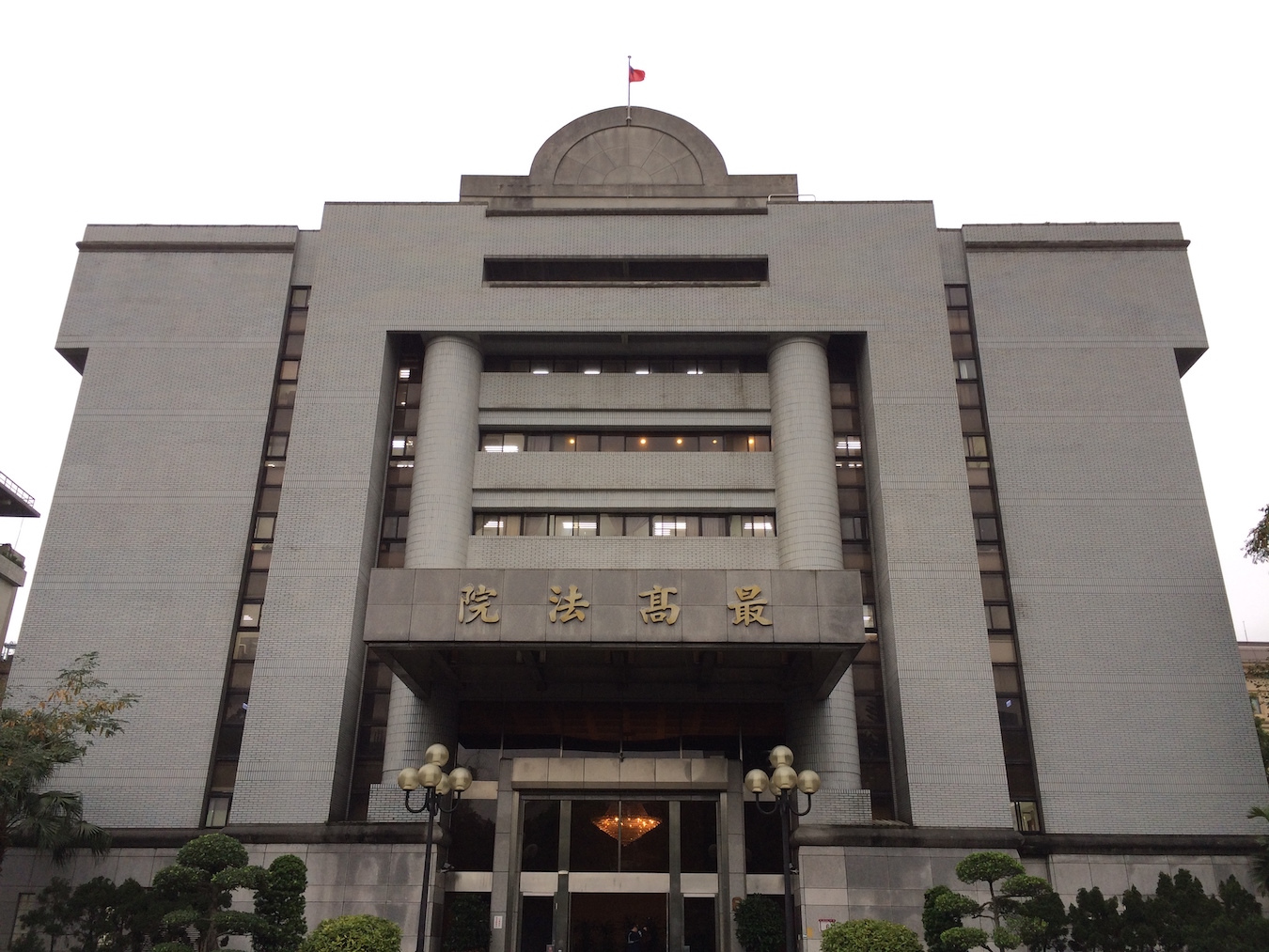by Brian Hioe
語言:
English
Photo Credit: Brian Hioe
THE TAIWAN SOLIDARITY UNION (TSU), which currently holds no seats in the Legislative Yuan but has historically positioned itself as a politically conservative pan-Green party, has taken a stance against trans rights with recent actions.
In particular, the TSU recently held a press conference along with the Taiwan Women’s Association to stir up fears regarding trans women entering female bathrooms, dressing rooms, and dormitories only on the basis of self-identification. Notably, the TSU framed itself as supportive of gay marriage in the press conference, as well as willing to accept trans women who have undergone surgery, but criticizing the notion of self-identification.
Laws governing changing gender on the national ID have historically required sterilization before this is allowed. That is, laws required proof of surgery in order to be allowed to legally change one’s gender, which included specifying what body parts needed to be surgically removed to qualify for being able to legally change one’s gender. Transgender women were required to surgically remove their penis and testicles while transgender men were required to surgically remove their breasts, uterus, and ovaries. A mental health evaluation from two psychiatric specialists was also required.
Indeed, as such, ROC law demonstrates a highly biological view of gender, when many transgender individuals may identify as a different gender than that which they were identified at birth but may not wish to undergo surgery. Such surgery requirements, then, necessitated the sterilization of those who wished to legally change their gender, as well as imposing the cost of surgery upon them.
This requirement was struck down by the Taipei High Administrative Court in September 2021. Subsequently, the Judicial Yuan’s Supreme Administrative Court ordered the rehearing of a previous ruling by the Kaohsiung High Administrative Court on a transgender woman’s legal gender change appeal, in that the Kaohsiung High Administrative Court had ruled against the woman, but her administrative appeal had worked its way up to the Supreme Administrative Court.
 Photo credit: James9052311/WikiCommons/CC BY-SA 3.0
Photo credit: James9052311/WikiCommons/CC BY-SA 3.0
However, the process of changing laws on trans rights continues to be up in the air. In particular, it is to be seen if any organized opposition to trans rights by conservatives leads to pushback in such a manner that delays changes to current regulations.
In its press conference, the TSU criticized the Tsai administration as mimicking foreign trends, in legislating changes regarding trans rights. Previously, the TSU accused the Tsai administration of trying to covertly pass trans rights, seeing as there is not widespread social focus on the issue of trans rights in Taiwanese public discourse, the way there was around gay marriage. At the same time, one notes that the Ministry of the Interior has defended surgery requirements by
Ironically, despite its criticisms of the Tsai administration as just blindly pursuing foreign trends, the TSU is also drawing from the global discourse of fear-mongering about trans individuals in connection with fears about bathrooms or female dormitories. This claim has been raised numerous times in other political contexts to fear-monger about trans rights.
That being said, it is also true that pushback against trans rights in Taiwan is not organized in the manner that conservative pushback against gay marriage. After all, in the period prior to the legalization of gay marriage, one saw attempts by mostly Christian-led religious groups to thwart the legalization of gay marriage by seeking to recall legislators supportive of marriage equality, organizing a national referendum on the issue, and even suggesting that they would field a slate of legislators that would seek to enact a conservative Christian political agenda in Taiwan.
Though this alliance of conservative groups, mostly spearheaded by the Protect the Family Alliance, did not get so far as fielding a slate of legislators, such organizing against gay marriage was carried out mostly in cooperation with the KMT. For the most part, one expects there to primarily be pushback against gay marriage if the KMT threw its weight behind the issue–something that could possibly result in a cross-party alliance of conservatives between the TSU and KMT. While the KMT has shown relatively few signs of interest in the issue, it is to be seen if this happens, along similar lines to other causes in which conservatives of the pan-Green and pan-Blue camps have aligned, such as questioning Tsai Ing-wen’s dissertation.

